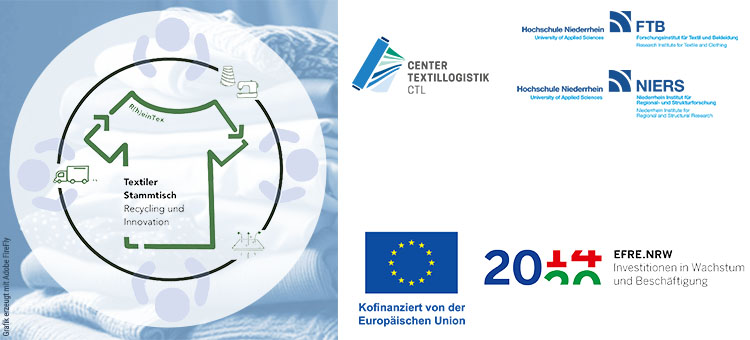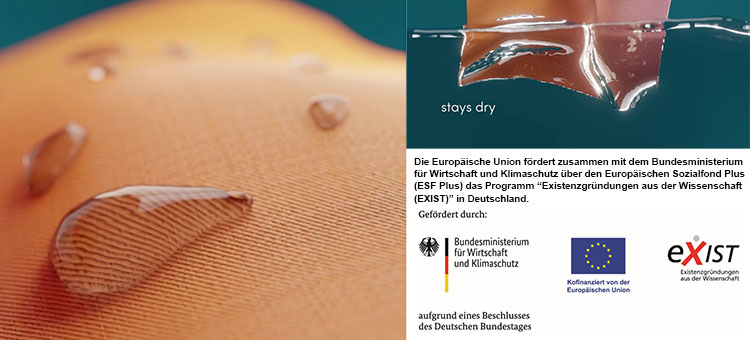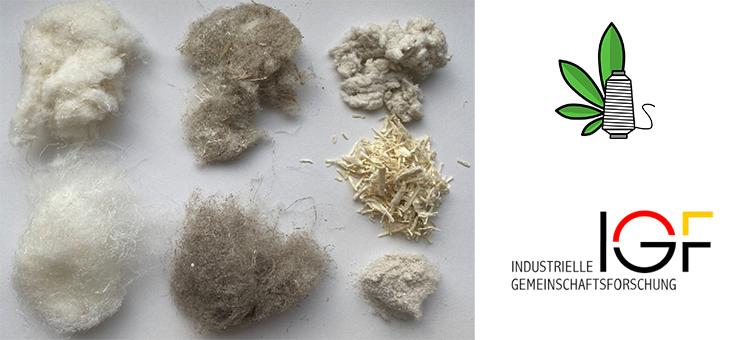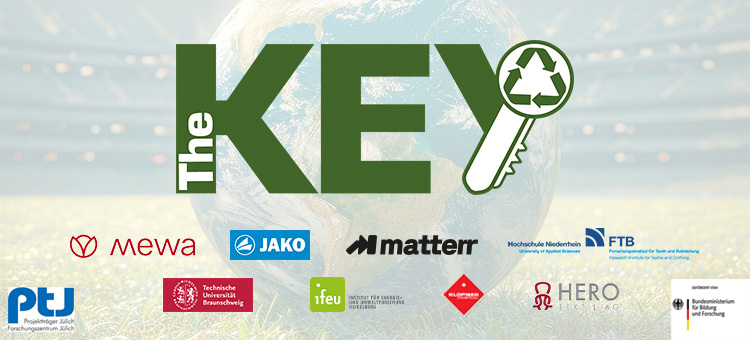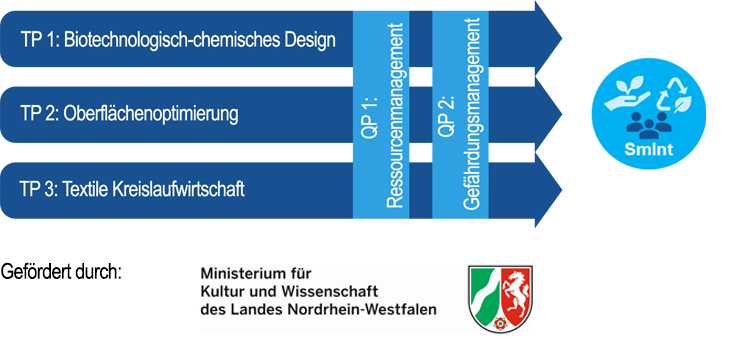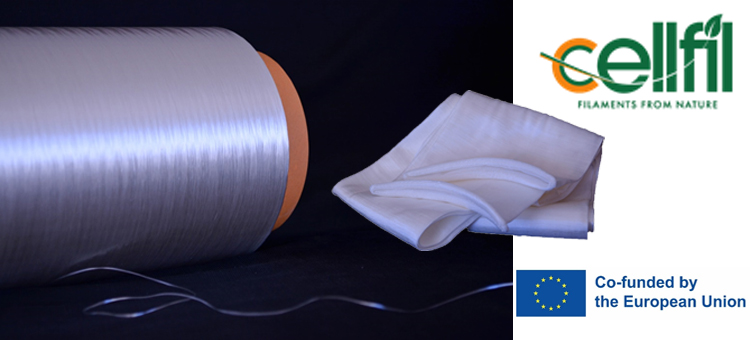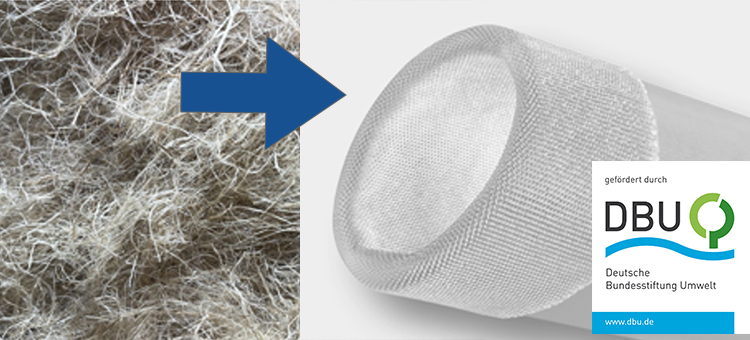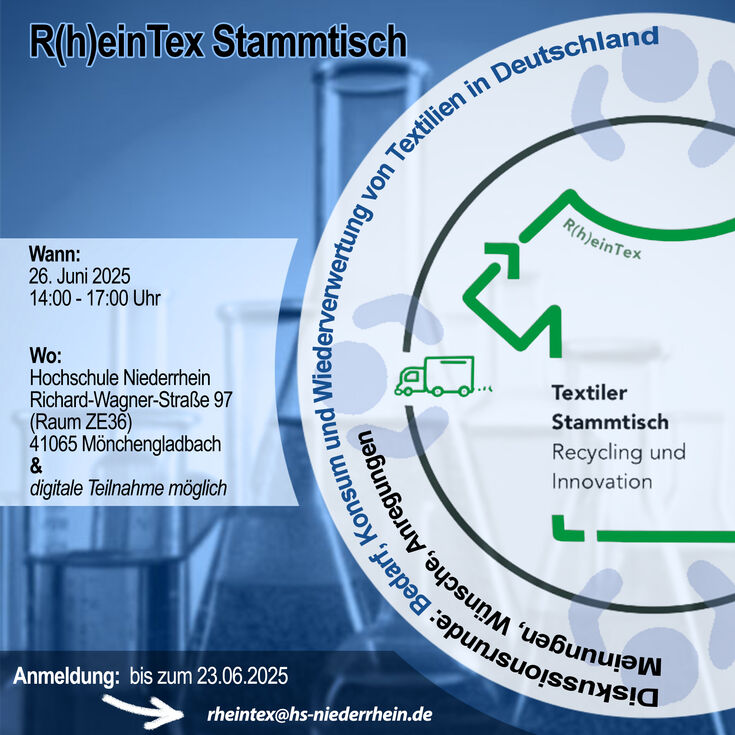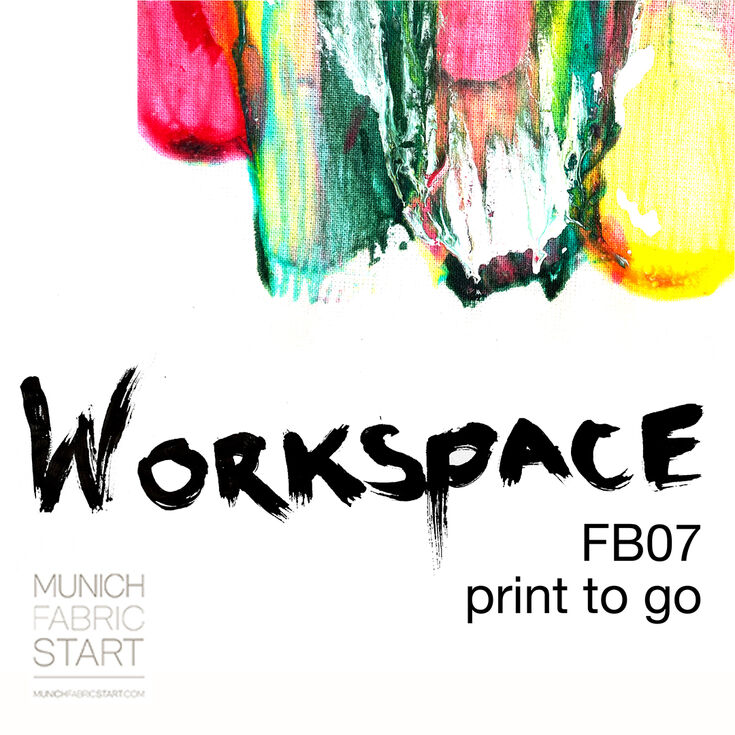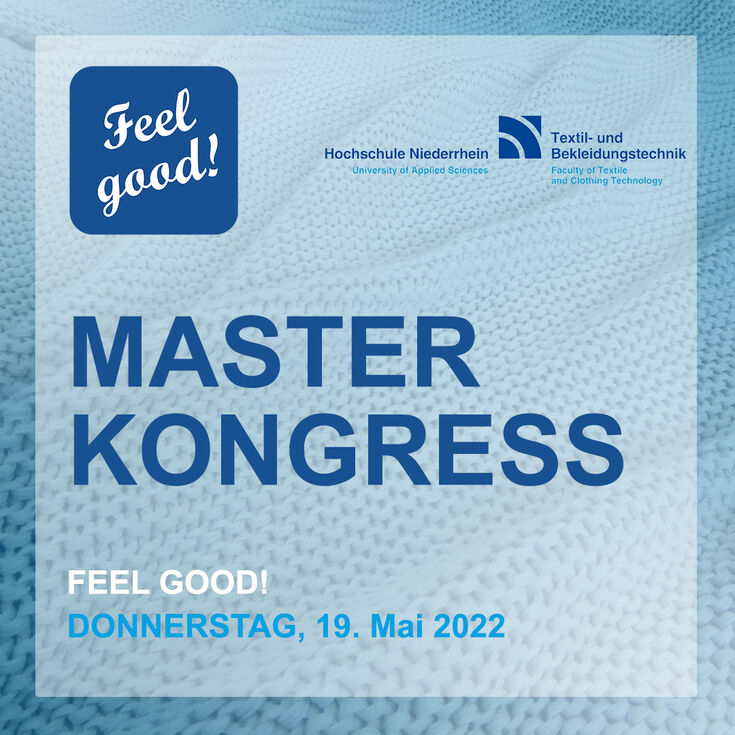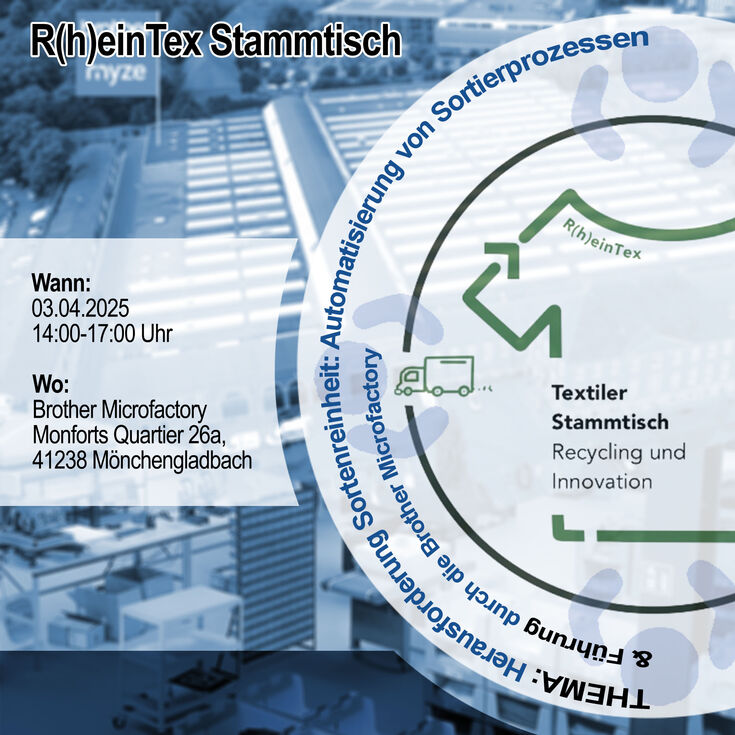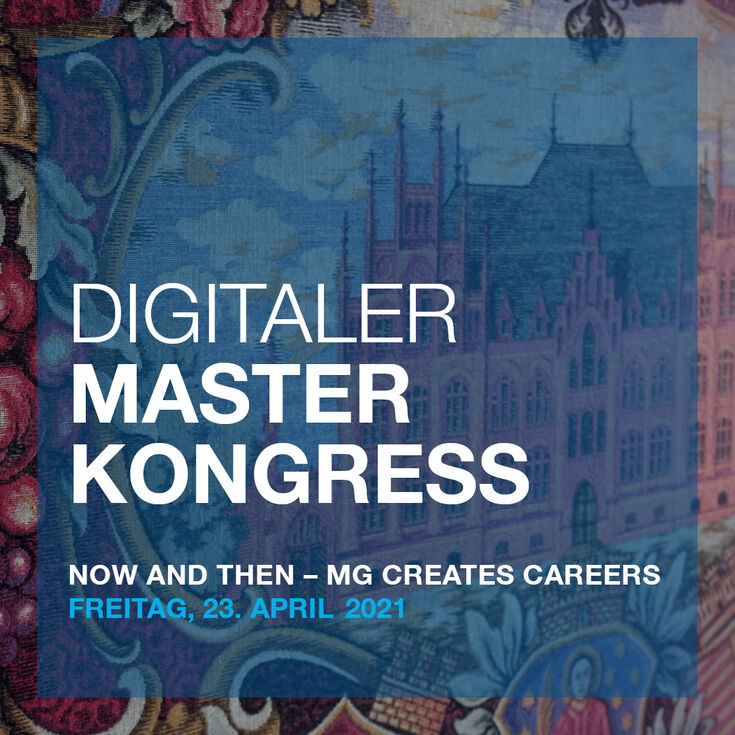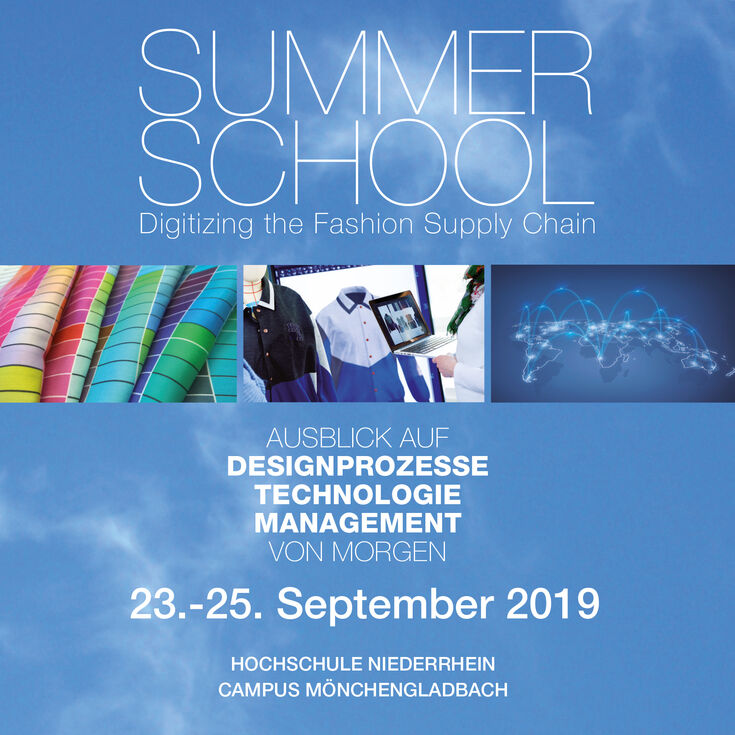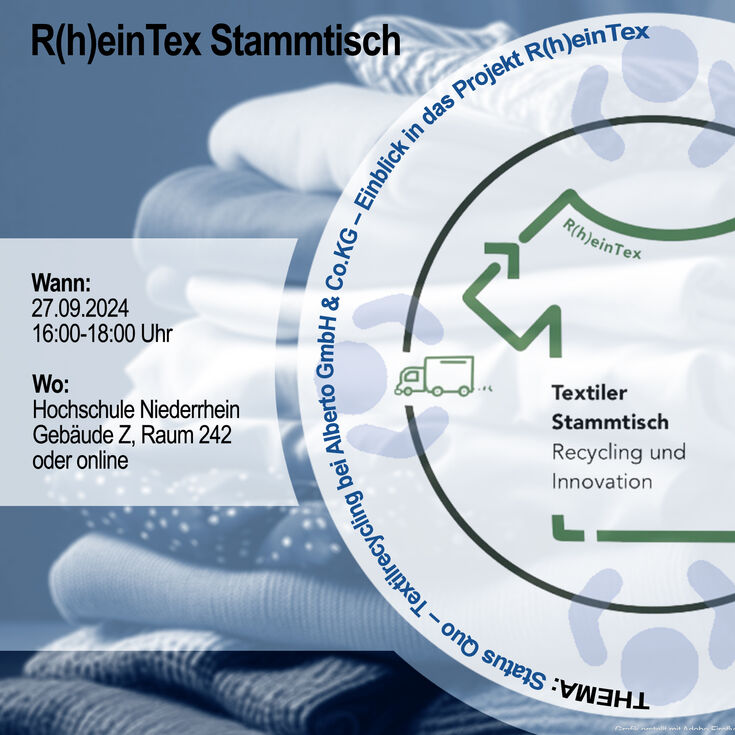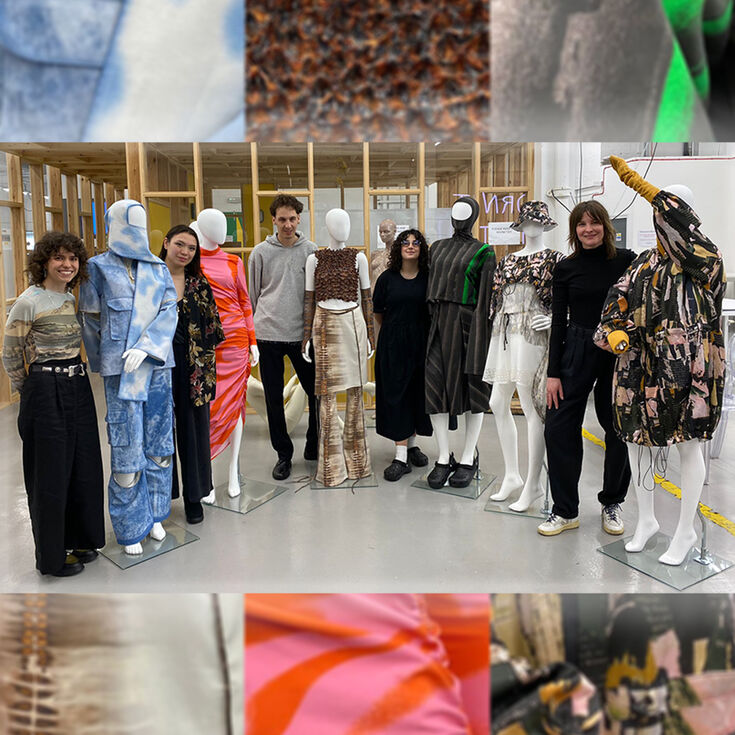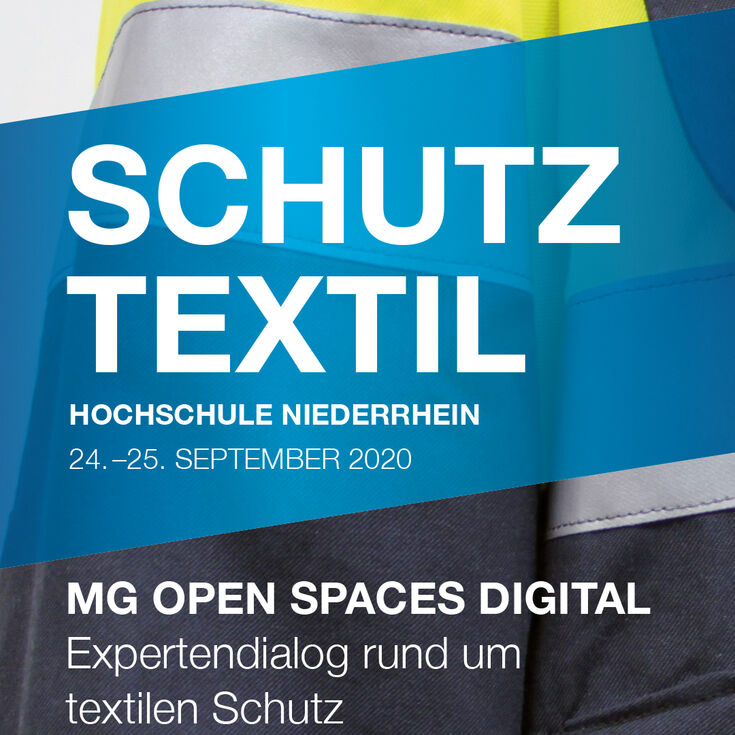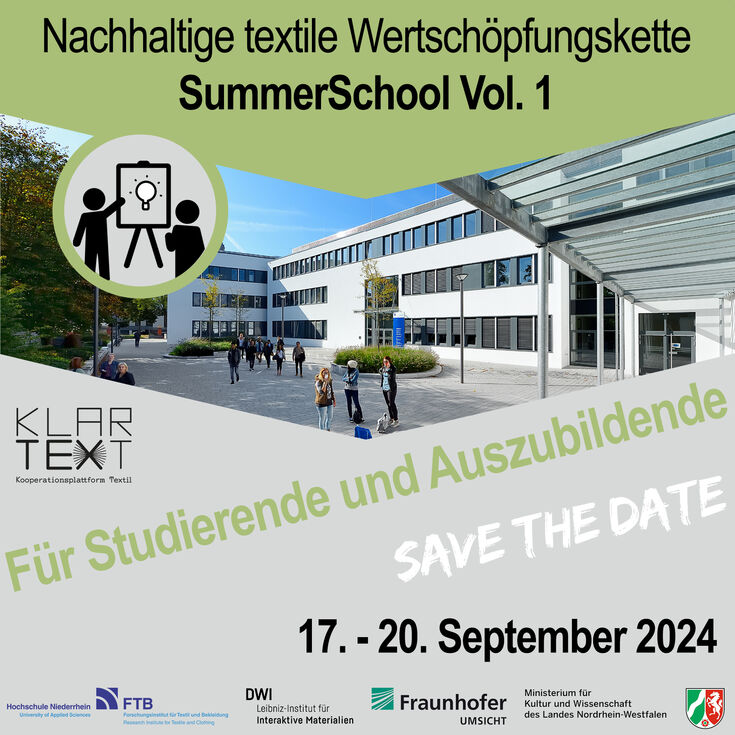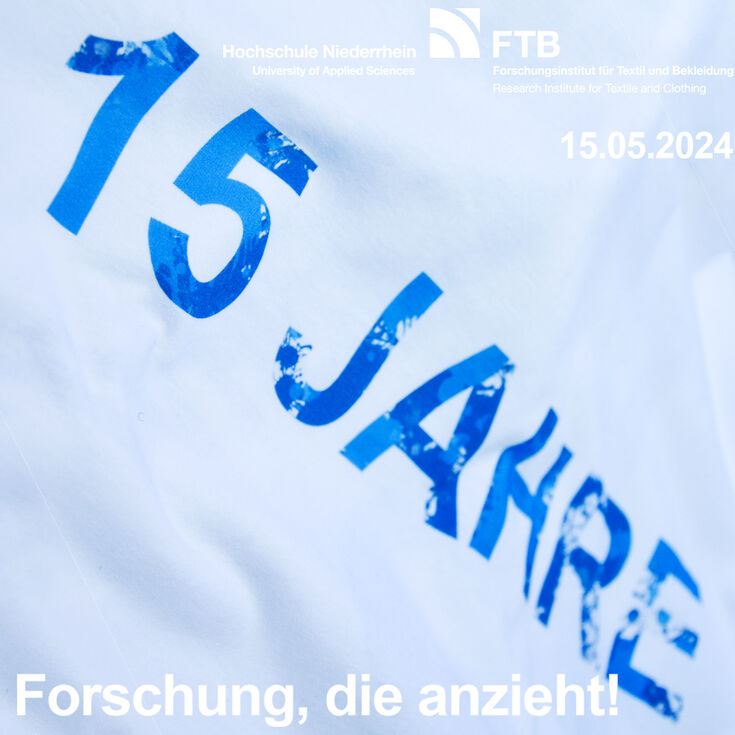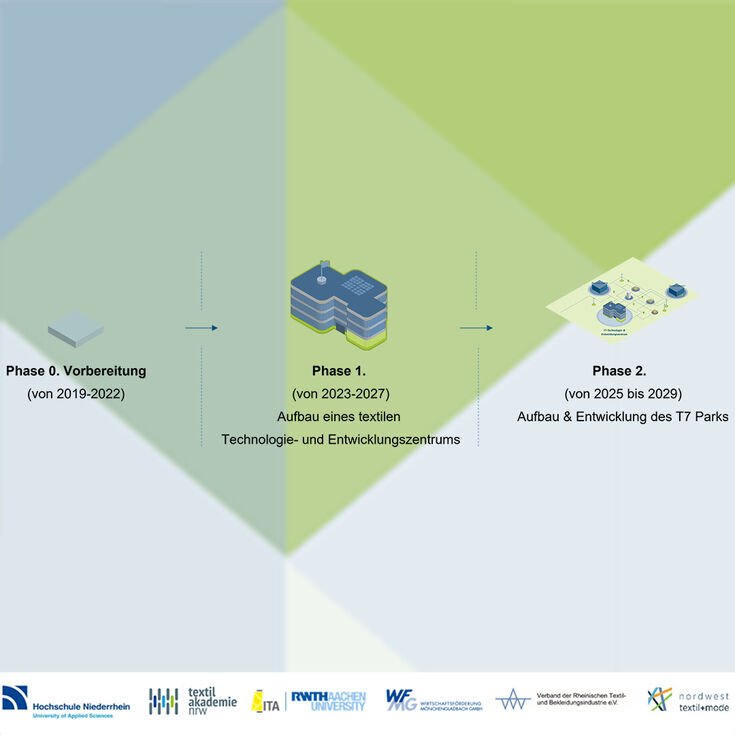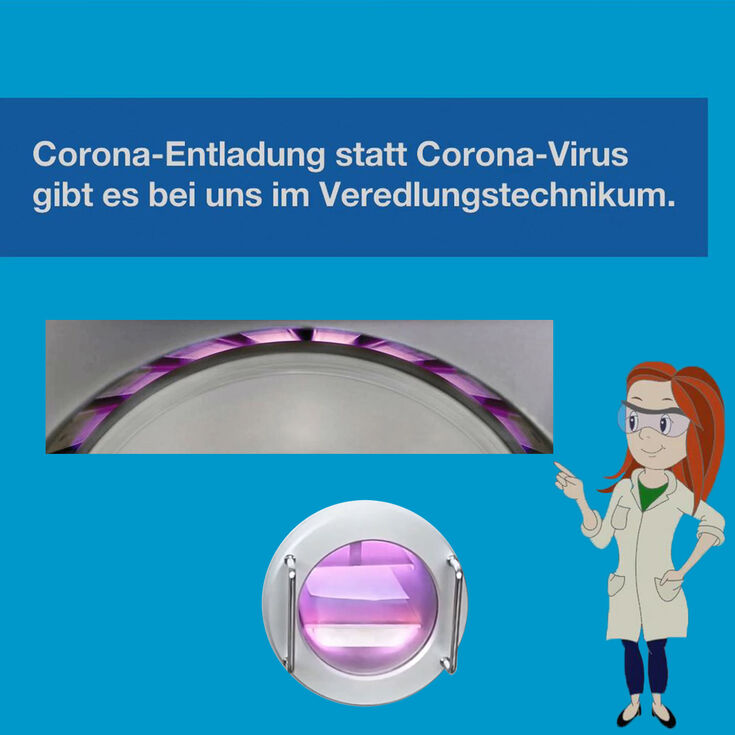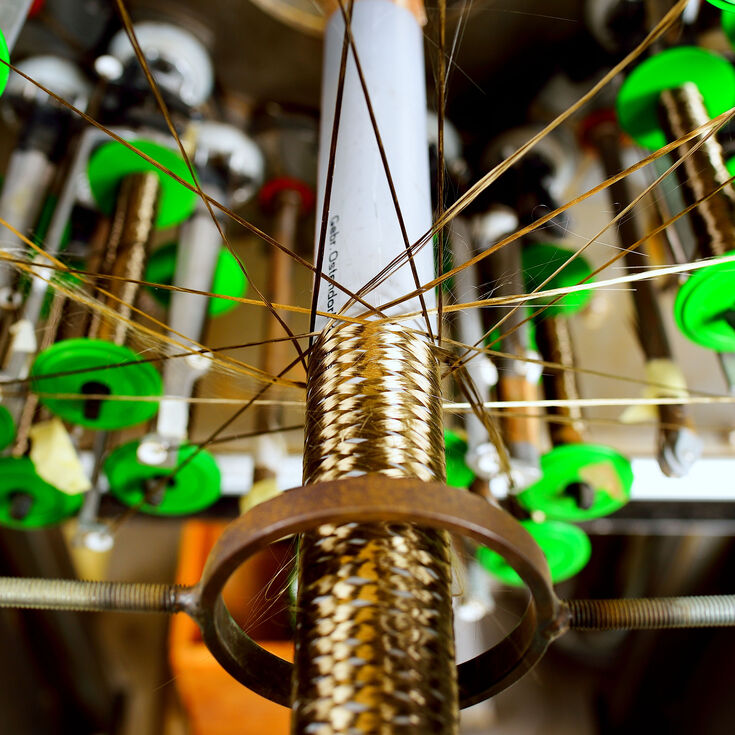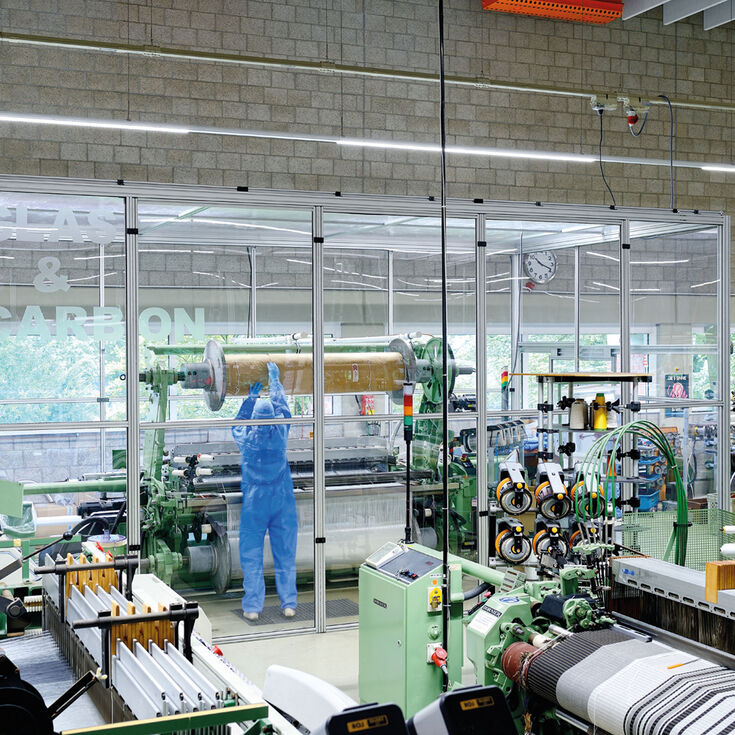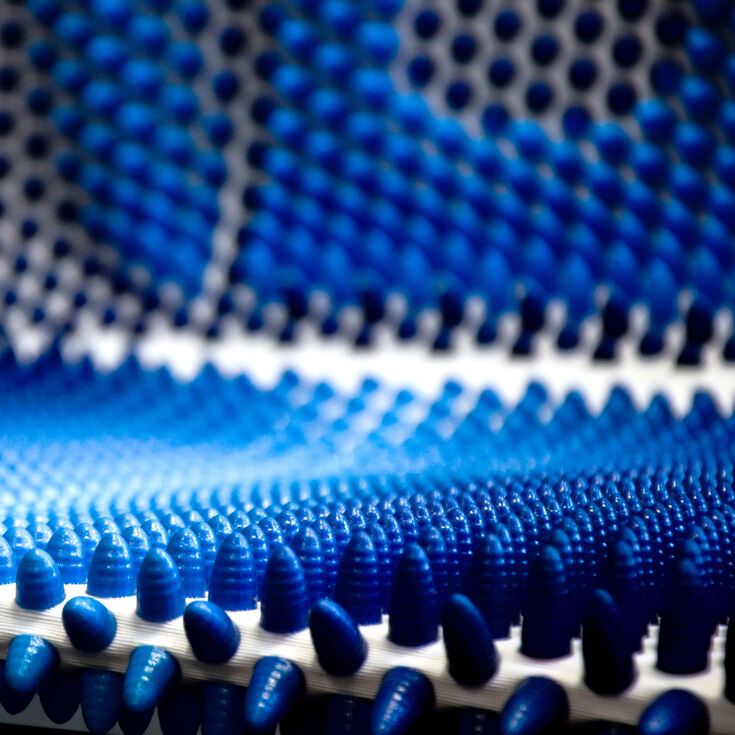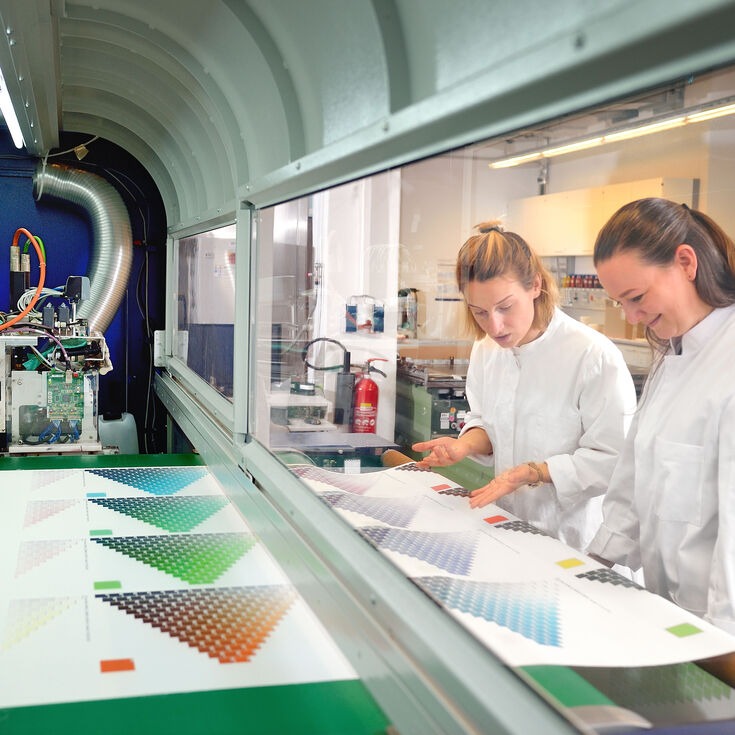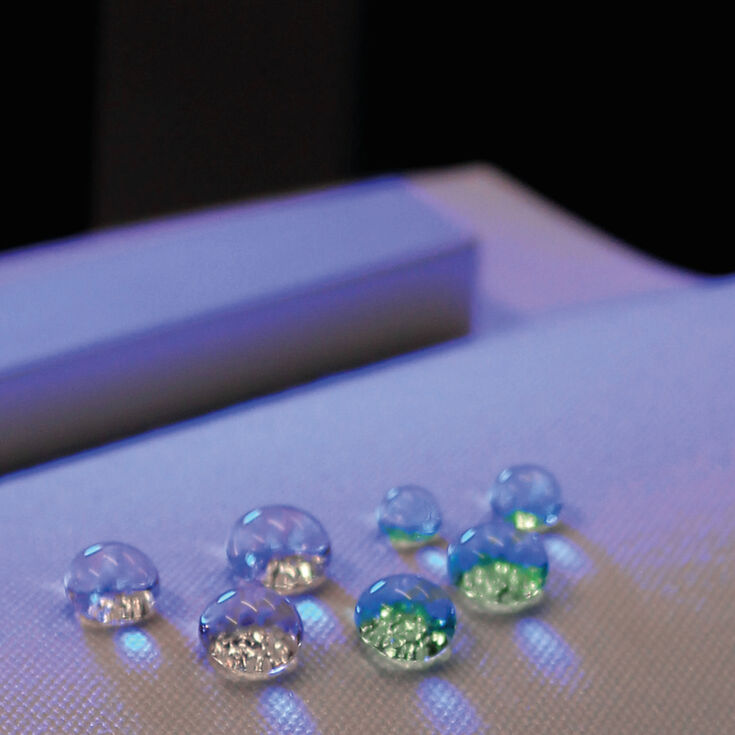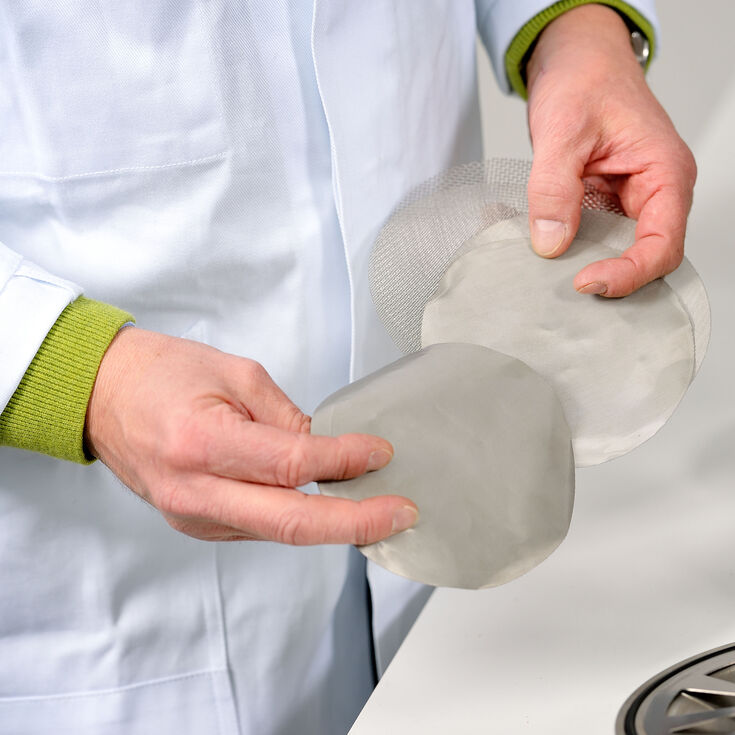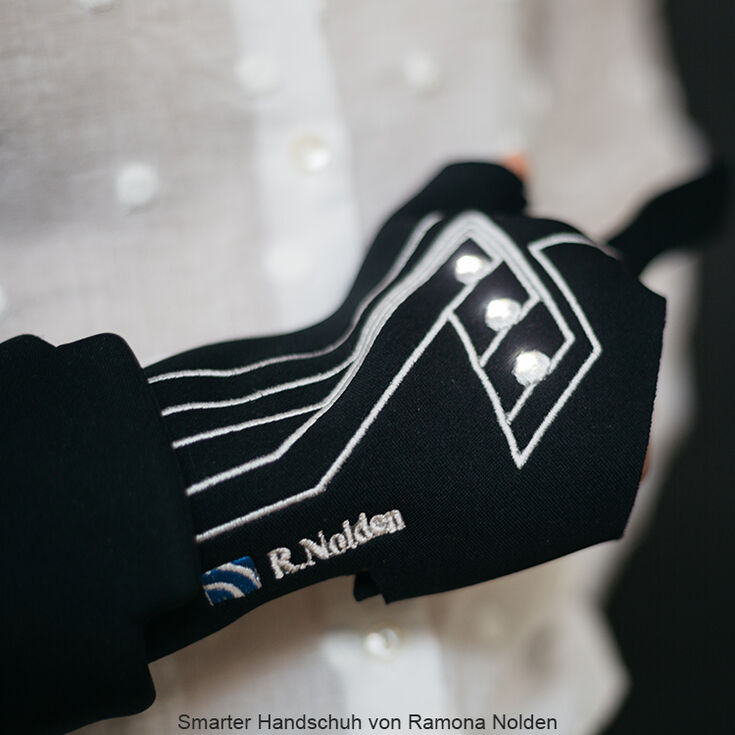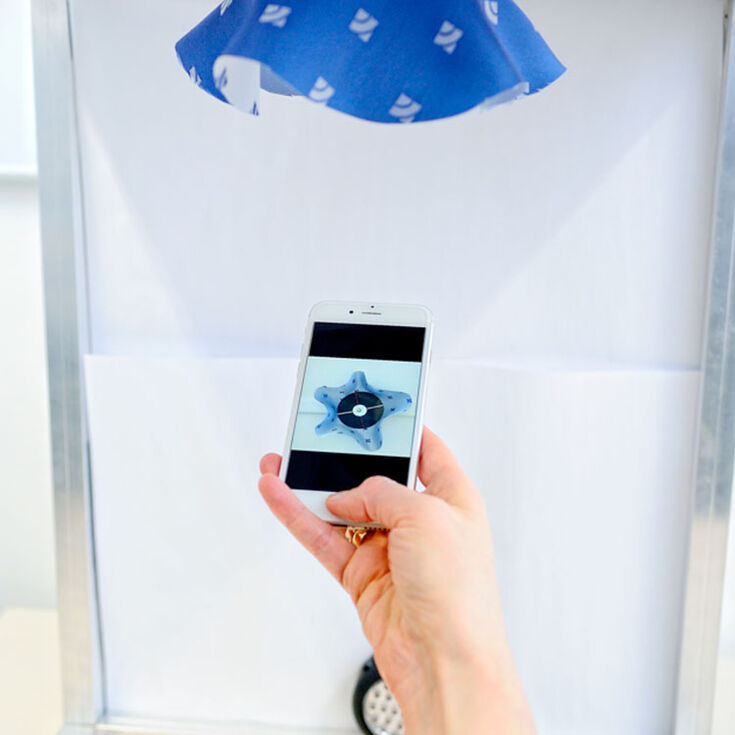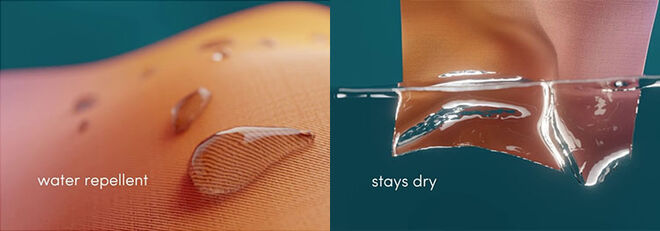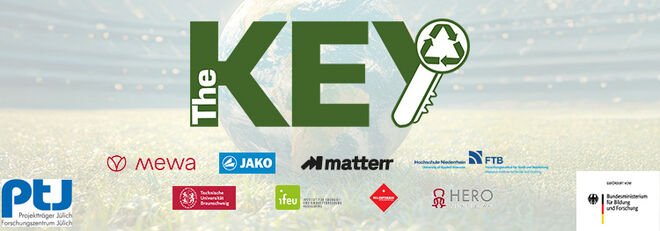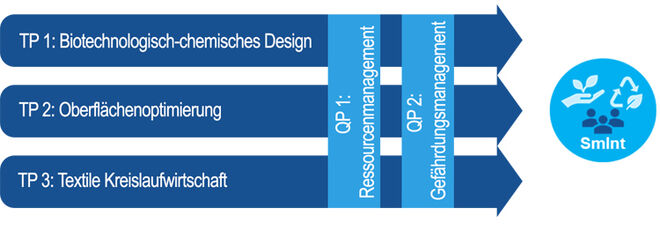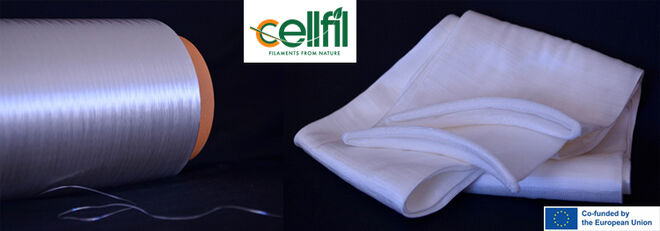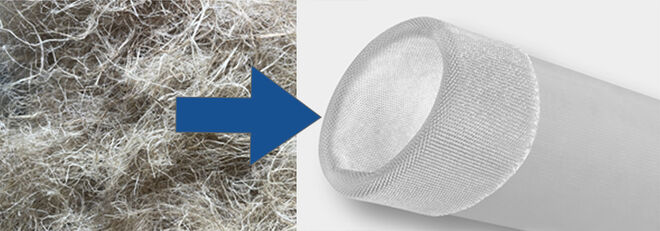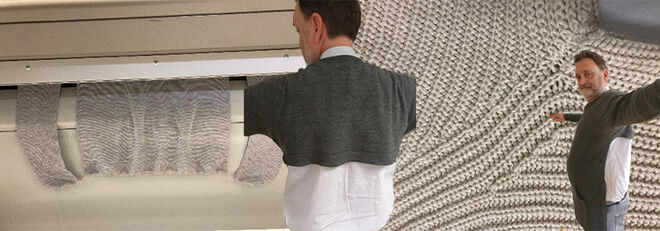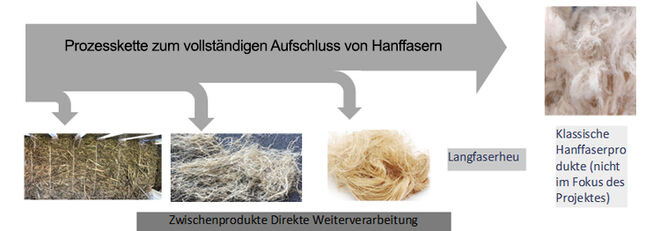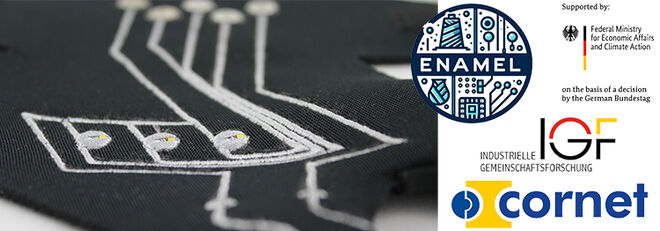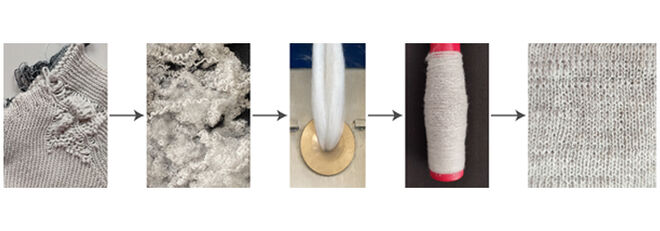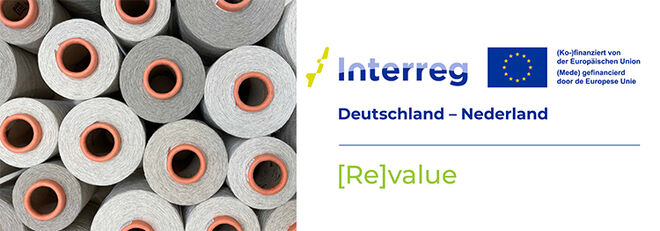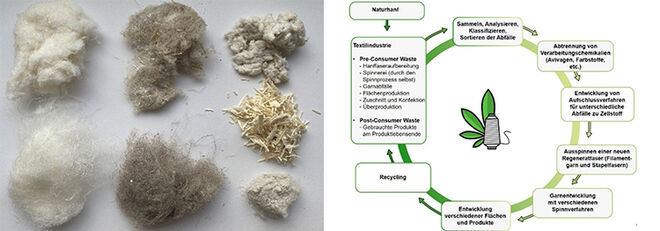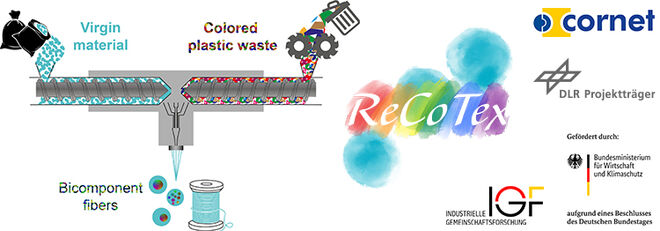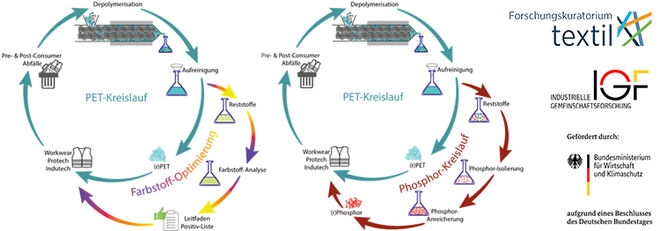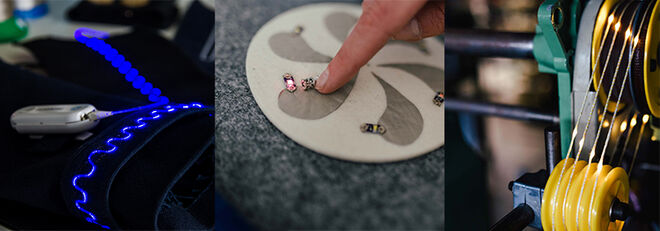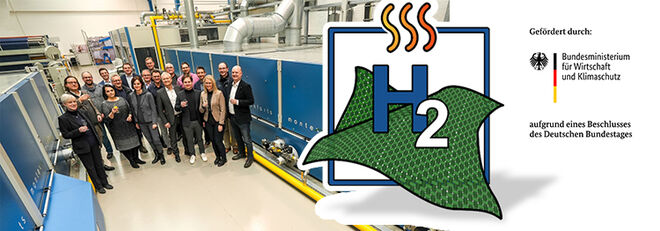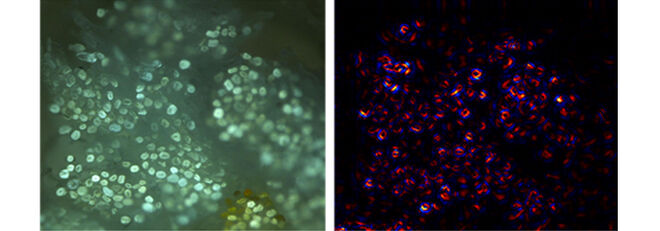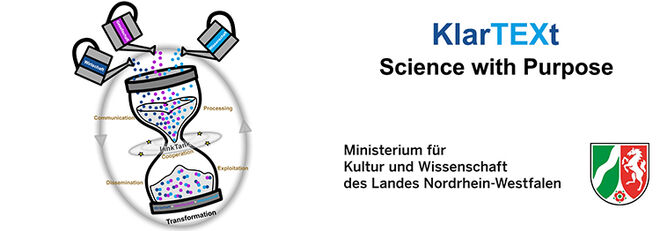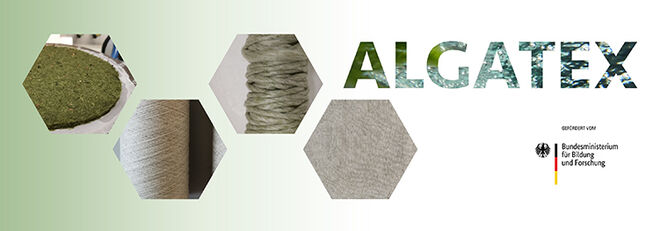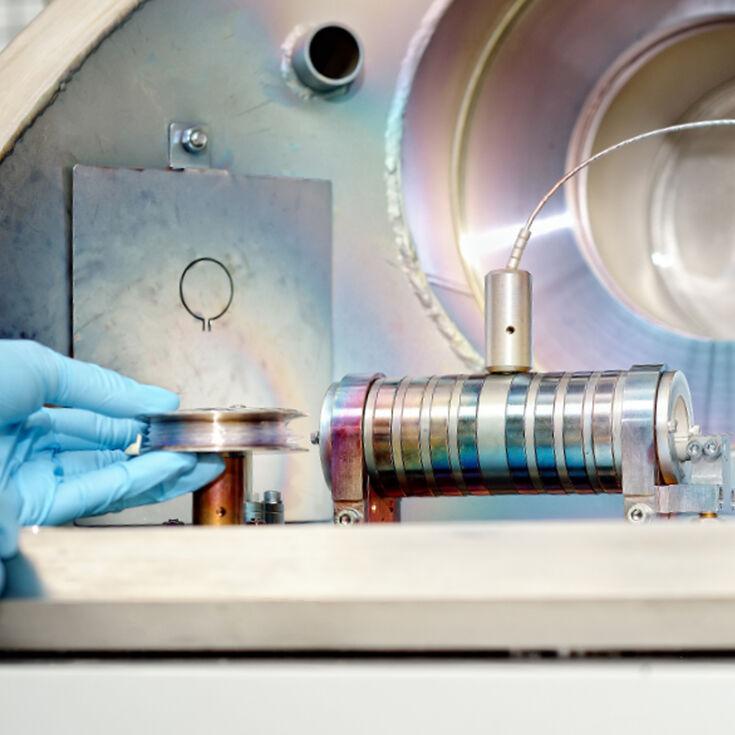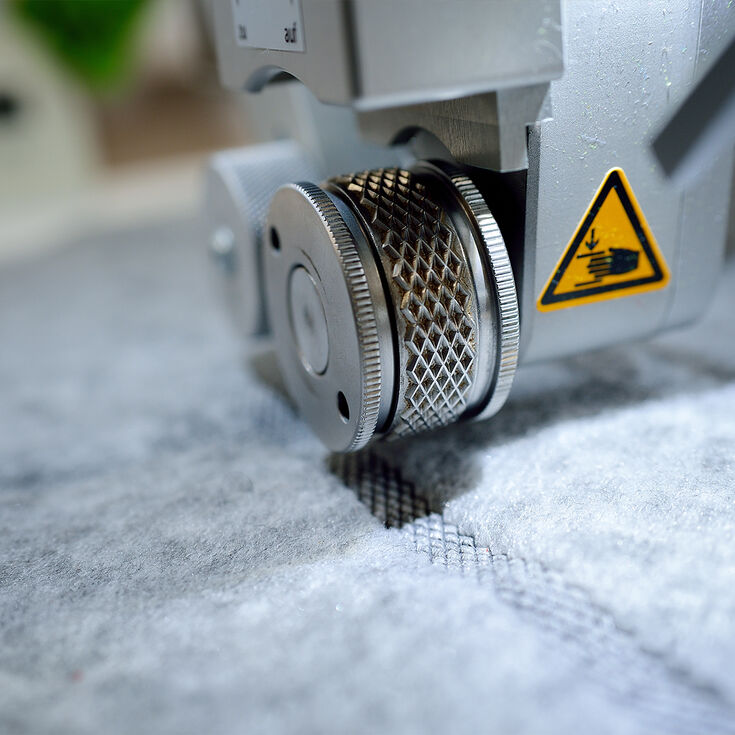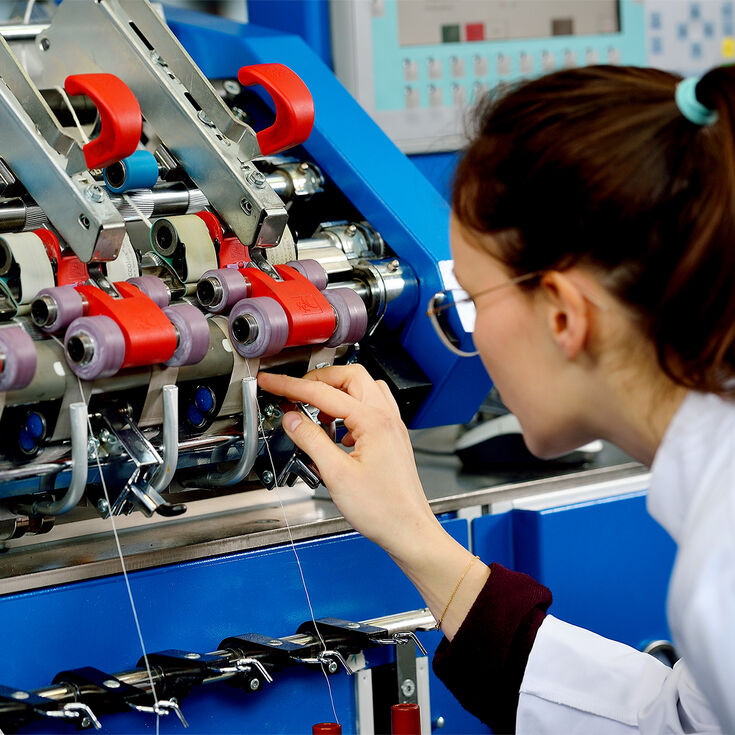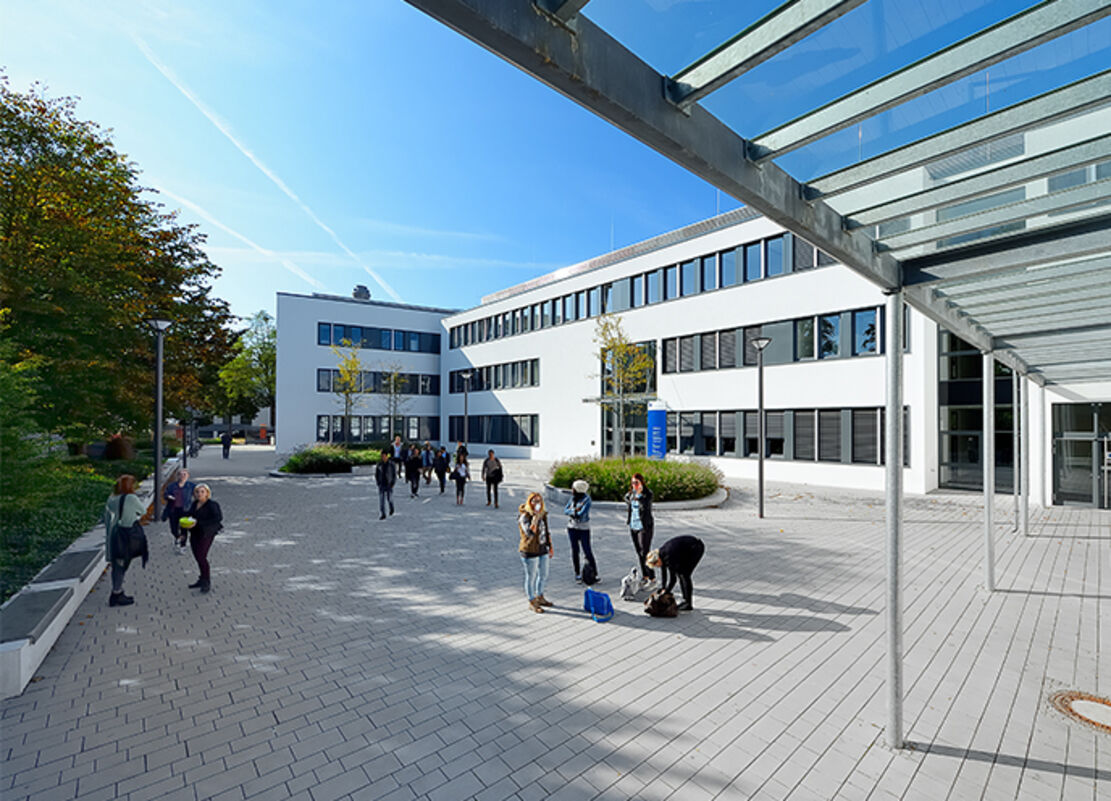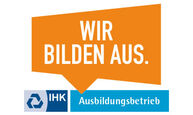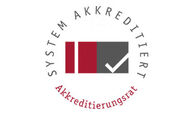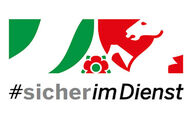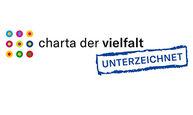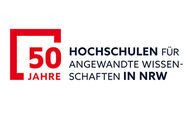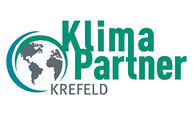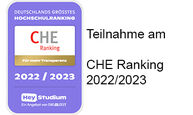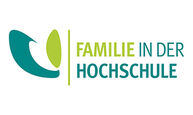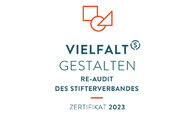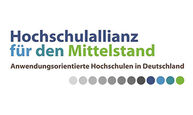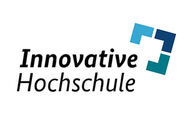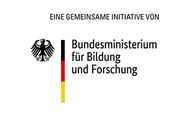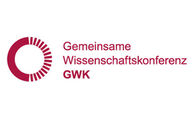O. Kyzymchuk, Y. Kyosev, C. Richter, E. Bendt
Reference Module in Materials Science and Materials Engineering, Chapter: Mechanics of Knitted Fabrics
Elsevier Inc., 2023
doi.org/10.1016/B978-0-323-90646-3.00018-6
M.T. Hoque, K. Klinkhammer, B. Mahltig
Finishing of cotton and polyester fabrics using chitosan-containing recipes
Bulletin of Vitebsk State Technological University, 2023, 3(46), 84-91.
E. Lempa, A. Memisoglu, M. Rabe, M.Eigenstetter
Innovative finishing processes and an effective chemicals management for a safe
and sustainable textile industry
Book of Abstracts, P88, p. 233, Aachen-Dresden-Denkendorf International Textile Conference, ADDITC 2023, 30.11. - 01.12.2023, Dresden
M. T. Hoque, M. Eigenstetter
Jute - the golden fiber with excellent opportunities
Book of Abstracts, P87, p. 232, Aachen-Dresden-Denkendorf International Textile Conference, ADDITC 2023, 30.11. - 01.12.2023, Dresden
C. Richter, K. Klinkhammer, E. Bendt, C. Cherif
Water pressure difference test system for investigating the porosity of textile surfaces
Book of Abstracts, P86, p. 231, Aachen-Dresden-Denkendorf International Textile Conference, ADDITC 2023, 30.11. - 01.12.2023, Dresden
L. Blanckart, K. Ratovo, A. Rahaman, A. Abomohra, K.von Schwartzenberg, L.-J. Liebscher, M. Ecke, S. Matthes, N. Pathil, K. Knufmann, J. Ullmann, S. Hirschmüller, B. Sebastian, B. Mahltig, E. Bendt
Aquatic natural fibers as new raw material with potential for the textile industry
Book of Abstracts, P85, pp. 230, Aachen-Dresden-Denkendorf International Textile Conference, ADDITC 2023, 30 Nov - 01 Dec 2023, Dresden
C. Heil, D. Pattberg, H. Dagdeviren, K. Ratovo, J. Lewin, C. Richter, K. Klinkhammer, L. Blanckart, T. Bache, S. Grobe, T. Engel, D. Strahl-Schäfer, T. Weide, B. Mahltig, E. Bendt
Tradition meets innovation - hemp fibres as an opportunity for new, sustainable
textile products with a regional value chain
Book of Abstracts, P84, p. 229, Aachen-Dresden-Denkendorf International Textile Conference, ADDITC 2023, 30.11. - 01.12.2023, Dresden
L. Hellweg, Y. Kyosev, M. Beer
Safety in fully autonomous passenger cars - Analysis of the current and new requirements for textile-based restraint system
Book of Abstracts, P82, p. 228, Aachen-Dresden-Denkendorf International Textile Conference, ADDITC 2023, 30.11. - 01.12.2023, Dresden
M. Taubert, H. Dagdeviren, T. Weide, K. Klinkhammer, D. Pattberg, C. Heil, E. Bendt
Alpax I + II - Yarn-, fabric- and product development for outdoor clothing made of alpaca fibers
Book of Abstracts, P82, p. 227, Aachen-Dresden-Denkendorf International Textile Conference, ADDITC 2023, 30 November - 1 December 2023, Dresden
R. Brendgen, K. Waletzke, K. Mengler, J. Schüssler, E. Nannen, A. Schwarz-Pfeiffer
Market growth vs. skilled labour shortage: The role of higher education in smart textiles
Book of Abstracts, P81, p. 226, Aachen-Dresden-Denkendorf International Textile Conference, ADDITC 2023, 30.11. - 01.12.2023, Dresden
K. Klinkhammer, M. T. Hoque, H. Hohenbild, L. Elze, H. Teshay, B. Mahltig
Functionalization of technical textiles with chitosan
Book of Abstracts, P80, p. 225, Aachen-Dresden-Denkendorf International Textile Conference, ADDITC 2023, 30.11. - 01.12.2023, Dresden
J. Bulthaupt, A. Tabakovic, L. Hellweg, M. Beer
Application of artificial intelligence in the field of textiles - Development of a transdisciplinary teaching concept for textile technology students
Book of Abstracts, P79, p. 224, Aachen-Dresden-Denkendorf International Textile Conference, ADDITC 2023, 30.11. - 01.12.2023, Dresden
I. Hofmann, A. Glogowsky, M. C. Reuters, S. Krause, J. Krayer, M. Rabe, U. Schwaneberg
Cooperation platform KlarTEXt for the dynamisation of a sustainable and transformative textile economy
Book of Abstracts, P78, p. 223, Aachen-Dresden-Denkendorf International Textile Conference, ADDITC 2023, 30.11. - 01.12.2023, Dresden
T. H. Mai, T. Grethe, B. Mahltig
Natural dyeing of cotton with extract from colour wood
Book of Abstracts, P77, p. 222, Aachen-Dresden-Denkendorf International Textile Conference, ADDITC 2023, 30.11. - 01.12.2023, Dresden
I. Hofmann, I. Singer, S. Kolbe, M. Rabe
Increased surface functionality through enzymatic treatments of bio-based and conventional polyesters
Book of Abstracts, P76, p. 221, Aachen-Dresden-Denkendorf International Textile Conference, ADDITC 2023, 30.11. - 01.12.2023, Dresden
E. Heine, R. Gartzen, A. Herrmann, R. Lütticken, I. Hofmann, S. Kolbe, R.Groten
ProSwabs - Efficient swab system for precise laboratory diagnostics and consecutively specific antibiosis and disinfection
Book of Abstracts, P70, p. 215, Aachen-Dresden-Denkendorf International Textile Conference, ADDITC 2023, 30.11. - 01.12.2023, Dresden
B. Quattelbaum, M. Streit, C. Breckenfelder
5G mobile user textile AR experience - the virtual dressing room as an opportunity for stationary and online trade 5G mobile user textile AR experience
Die virtuelle Ankleidekabine als Chance für den stationary und den Online-Handel
Session: "Technology Transfer "Form Idea to Practice""
Book of Abstracts, pp. 79f, Aachen-Dresden-Denkendorf International Textile Conference, ADDITC 2023, 30.11. - 01.12.2023, Dresden
B. Mahltig
Comparison of conventional and digital lectures and examinations with respect to the conditions after COVID 19 period- an example for a bachelor lecture on textile finishing
Communications in Development and Assembling of Textile Products - CDATP, 2023, 4, 284-293
B. Quattelbaum, C. Steinem, M. Neumann
Data-Informed Design Process for SME: A Streamlined Validation and Prediction Approach for Customer Perception of Innovative Material Prototypes
Proceedings of the ASME 2023 - International Mechanical Engineering Congress & Exposition®- IMECE®, Volume 2: Advanced Design and Information Technologies, V002T02A003, New Orleans Ernest N. Morial Convention Center, New Orleans, LA, USA, 29 October - 2 November 2023
Publisher: American Society of Mechanical Engineers
Paper No: IMECE2023-112222
https://doi.org/10.1115/IMECE2023-112222
P. Holderied, M. O. Weber, M.-A. Bueno
New weft knitting process: Morphological, physical and mechanical characterisation of the innovative knitted fabrics.
Journal of Engineered Fibers and Fabrics 18, article 15589250231205184. DOI: 10.1177/15589250231205184.
https://journals.sagepub.com/doi/10.1177/15589250231205184
L. Blanckart, K. Ratovo, B. Mahltig, E. Bendt
Aquatic natural fibres as a new raw material with potential for the textile industry
Melliand Textilberichte 4/2023, Fasern & Garne, p. 20ff
L. Vossebein
The strength of the network: pooling expertise for applied hygiene
Hygiene & Medizin, Volume 48, 9/2023
M.T. Hoque, K. Klinkhammer, B. Mahltig
HT process for treatment of PET fabrics with chitosan containing recipes
Communications in Development and Assembling of Textile Products - CDATP, 2023, 4, 222-230
https://journals.qucosa.de/cdatp/article/view/124
T. Junge, R. Brendgen, C. Graßmann, T. Weide, A. Schwarz-Pfeiffer
Development and Characterization of Hybrid, Temperature Sensing and Heating Yarns with Color Change
MDPI, Sensors 2023 , 23(16), 7076
https://www.mdpi.com/1424-8220/23/16/7076
K. Stylidis, B. Quattelbaum, C. Diels, A. Braun, F. Konrad, R. Söderberg
Perceived Comfort of Car Seats: A Research Methodology to Visual Cues Evaluation.
In: A. Chakrabarti, V. Singh (eds) Design in the Era of Industry 4.0, Volume 3. ICORD 2023. Smart Innovation, Systems and Technologies, vol 346. Springer, Singapore.
https://doi.org/10.1007/978-981-99-0428-0_21
Print ISBN978-981-99-0427-3
Online ISBN978-981-99-0428-0
A. Glogowsky, M. Korger, M. Rabe
Influence of print settings on conductivity of 3D printed elastomers with carbon-based fillers
Progress in Additive Manufacturing Vol. 8, August 2023
DOI: 10.1007/s40964-023-00483-y
J. Bulthaupt, A. Tabakovic, L. Hellweg, M. Beer
Artificial intelligence in textile - transdisciplinary teaching concept for students in the field of textile technology
Digital Poster Presentation, ITMA 2023 - Textile & Garment Technology Exibition, 08. - 14.06.2023, Milan, Italy
M.-E. Ostheller, N. K. Balakrishnan, K. Beukenberg, R. Groten, G. Seide
Pilot-Scale Melt Electrospinning of Polybutylene Succinate Fibre Mats for a Biobased and Biodegradable Face Mask
MDPI, Polymers 2023, 15, 02936
Abstract: https://www.mdpi.com/2073-4360/15/13/2936
PDF-Version: https://www.mdpi.com/2073-4360/15/13/2936/pdf
M.T. Hoque, T. Benrui, T. Grethe, B. Mahltig
Evaluation of chitosan based pretreatment for cotton and linen dyeing with direct dyes and reactive dyes
Communications in Development and Assembling of Textile Products - CDATP, 2023, 4, 187-200.
E. Lempa, S. Brandt, O. Heß, B. Mahltig, M. Rabe, I. Singer, S. Wagner
ITMA 2023 - between taking a deep breath and holding your breath
ITMA 2023 - between taking a deep breath and holding your breath
Melliand 06/2023, p. 41-43
A. Memisoglu, E. Lempa, M. Eigenstetter
Innovative Finishing Processes and an Effective Chemicals Management for a Safe and Sustainable Textile Industry - Practical Insights from the German-Indonesian Project EnaTex
Poster at Textile Colourants and Chemicals Forum, ITMA 2023 - Textile & Garment Technology Exibition, 09.06.2023, Milan, Italy
A. Glogowsky, A. Korn, B. Rau, M. Rabe
Use of 3D printing technology for the production of thin layers. Digital coating of textiles.
Poster Presentation ITMA Innovator Xchange, ITMA 2023 - Textile & Garment Technology Exibition, 08. - 14.06.2023, Milan, Italy
Poster available online https://virtual.oxfordabstracts.com/#/event/3214/poster-gallery/grid?sort=titles¤t=176.
B. Mahltig, T. Leisegang, M. Jakubik, H. Haufe
Hybrid Sol-Gel Materials for Realisation of Radiation Protective Coatings - a review with emphasis on UV protective materials
Journal of Sol-Gel Science & Technology, 2023, 107, 20-31.
E. Bendt, M. Rabe, S. Kolbe, S. Küppers, S. Brandt, J. Meyer, M. Obermann, K. Ratovo
Micro/nanoplastics
Book chapter 19 [Toxicology/safety/ecological toxicity and environmental impact] in: Particle Technology and Textiles - Review of applications (Edt.: J. Cornier, F. Pursche)
2nd Edition, Walter de Gruyter GmbH, Berlin, 2023, pp. 373ff
ISBN: 978-3-11-0670769
doi.org/10.1515/9783110670776-202
B. Mahltig
Finishing of textile materials
Book chapter 3 [Fillers in Fibers and textiles] in: Particle Technology and Textiles - Review of applications (Edt.: J. Cornier, F. Pursche)
2nd Edition, Walter de Gruyter GmbH, Berlin, 2023, p.45ff
ISBN: 978-3-11-0670769
doi.org/10.1515/9783110670776-202
E. Bendt, B. Mahltig
Textile sun protection with skin care upgrade
Masche 2023, Issue 1 - Worth knowing, p. 25
K. Klinkhammer, P. Weskott, K. Ratovo, M. Krieg, E. Bendt, B. Mahltig
Transmission Reduction for UV and IR Radiation with Dyed Lyocell Knitted Textiles
Applied Sciences, 2023, 13, 5432.18 pages
doi.org 10.3390/app13095432
H. Lichtenberg, C. Elfenkemper, B. Mahltig, A. Prange, J. Hormes, W. Klysubun
Synchrotron radiation for the analysis of inorganic fibres - especially basalt fibres
Technical Textiles, 2023, 66, 22-24.
H. Lichtenberg, C. Elfenkemper, B. Mahltig, A. Prange, J. Hormes, W. Klysubun
Synchrotron radiation for the analysis of inorganic fibres - especially basalt fibres
Technical Textiles, 2023, 66, 22-24.
N.S.L. Dissanayake, M.A. Pathirana, N.D. Wanasekara, B. Mahltig, G.K. Nandasiri
Removal of Methylene Blue and Congo Red Using a Chitosan-Graphene Oxide Electrosprayed Functionalized Polymeric Nanofiber Membrane
Nanomaterials, 2023, 13, 1360, 22 pages.
L. Vossebein, S. Anton-Katzenbach
A differentiated view of laundry from retirement homes
Health & Care Management, Issue 2/2023, Volume 14, pp. 60-6
L. Vossebein, S. Anton-Katzenbach
Textiles from retirement and nursing homes - interpretative scope
R+W Textilservice, Issue 4, April 2023, B7011, 122 Volume, pp. 34-36
S. Schick, R. Groten, G. Seide
Performance Spectrum of Home-Compostable Biopolymer Fibers Compared to a Petrochemical Alternative
MDPI, Polymers 2023, 15, 01372
Abstract: https://www.mdpi.com/2073-4360/15/6/1372
PDF-Version: https://www.mdpi.com/2073-4360/15/6/1372/pdf
B. Mahltig, V. Ernst, L. Schröder
Exemplarily view on selected fluorescence textile products
Communications in Development and Assembling of Textile Products - CDATP, 2023, 4, 61-69.
W. Yuan, T. Grethe, B. Mahltig
Sol-gel coatings with the fluorescence dye Rhodamine B for the optical modification of cotton
Communications in Development and Assembling of Textile Products - CDATP, 2023, 4, 1-17.
J. Klausmann, T. Mutschler, P. Holderied, L. Streitenberger, M. O. Weber, O. Kyzymchuk
ITMA 2023: Trends and innovations in warp knitting
Melliand Textilberichte 4/2023, p. 34-37
J. Klausmann, T. Mutschler, P. Holderied, L. Streitenberger, M. O. Weber, O. Kyzymchuk
ITMA 2023: Trends and novelties in warp-knitting
Melliand International 4/2023, pp. 24-27
P. Holderied, L. Streitenberger, T. Mutschler, J. Klausmann, M. O. Weber, O. Kyzymchuk
ITMA 2023: Innovations and trends in flat knitting
Melliand Textilberichte 4/2023, p. 38-41
P. Holderied, L. Streitenberger, T. Mutschler, J. Klausmann, M. O. Weber, O. Kyzymchuk
ITMA 2023: Innovations and trends in flat knitting
Melliand International 4/2023, pp. 28-31
A. Lindenbuß, J. Klausmann, P. Holderied, T. Mutschler, M. O. Weber
Investigation of Raschel packaging nets in the fruit and vegetable sector
Melliand Textilberichte, 2/2023, pp. 26-28
J. Klausmann, T. Mutschler, P. Holderied, D. Güther, T. Freitag, M. Hummel, M. Zeitler, O. van Neerven, M. O. Weber, C. Breckenfelder
Thermodynamic qualification of knitted spacer fabrics for use as insulation box insert in the context of refrigerated transport containers in the logistics sector
Communications in Development and Assembling of Textile Products, p. 18-26, Vol. 4 No. 1 (2023)
DOI: https://doi.org/10.25367/cdatp.2023.4.p18-26
online: https://journals.qucosa.de/cdatp/article/view/99
P. Holderied, T. Mutschler, S. Tresp, J. Klausmann, L. Streitenberger, M.-A. Bueno, M. O. Weber
Development of a new yarn supply for weft knitting machines to produce innovative knitwear
Communications in Development and Assembling of Textile Products, p. 51-60, Vol. 4 No. 1 (2023)
DOI: https://doi.org/10.25367/cdatp.2023.4.p51-60
online: https://journals.qucosa.de/cdatp/article/view/98
A. Dannehl, A. Buhr, A. Sanchez Leyton, L. Hellweg, M. Beer, L. Sabantina
Self-healing materials for potential use in textile and clothing applications
Communications in Development and Assembling of Textile Products (CDATP),2023, Vol. 5, No. 1, 27-41, DOI 10.25367/cdatp.2023.4.p27-41.
https://journals.qucosa.de/cdatp/article/view/92
M. A. Pathirana, N.S.L. Dissanayake, N.D. Wanasekara, B. Mahltig, G.K. Nandasiri
Chitosan-Graphene Oxide Dip coated Polyacrylonitrile-Ethylenediamine ElectrospunNanofibre Membrane for Removal of thedye stuffs Methylene Blue and Congo Red
Nanomaterials, 2023, 13, 498, 23 pages.



